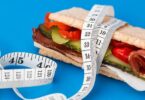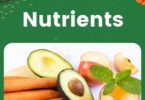Nutrition plays a pivotal role in reaching our health and fitness goals, from weight loss to muscle growth or simply maintaining the current state. Understanding your nutritional requirements is paramount – just like how fueling up a car enhances performance, so too can well-nourished bodies work optimally. In this article, we’ll look at different nutritional needs from early life through adulthood to find tailored dietary approaches which can help us realize our dreams!
Nutritional Requirements for Different Life Stages
Nutritional Requirements for Children

The National Health Service (NHS) of the United Kingdom provides some general guidelines for the nutritional requirements for 1 2 year olds NHS and nutritional requirements for 3 5 year olds. These guidelines are based on the latest Dietary Reference Values for Food Energy and Nutrients for the United Kingdom.
According to the NHS, children aged 1-2 years need about 1,000 calories per day, while children aged 3-5 years need about 1,200 calories per day. These calories should come from a variety of foods that provide adequate amounts of protein, carbohydrates, fats, vitamins, minerals, and fiber. The NHS recommends the following food groups and portions for children aged 1-2 years and 3-5 years:
- Fruit and vegetables: At least 400 grams (5 portions) per day. One portion is equivalent to one small banana, one medium apple, or two tablespoons of cooked vegetables.
- Bread, rice, potatoes, pasta, and other starchy foods: About 130 grams (4 portions) per day. One portion is equivalent to one slice of bread, one small potato, or three tablespoons of cooked rice or pasta.
- Milk and dairy products: About 350 milliliters (3 portions) per day. One portion is equivalent to one glass of milk, one small pot of yogurt, or one slice of cheese.
- Meat, fish, eggs, beans, and other sources of protein: About 45 grams (2 portions) per day. One portion is equivalent to one egg, two tablespoons of cooked beans or lentils, or one small piece of meat or fish.
- Oils and spreads: A small amount (about 20 grams) per day. This includes butter, margarine, vegetable oil, nut butter, and salad dressing.
- Foods high in fat, sugar, or salt: A very small amount (less than 20 grams) per day. This includes sweets, chocolates, cakes, biscuits, crisps, fizzy drinks, juice drinks, ketchup, mayonnaise, and gravy.
The NHS also advises parents to:
- Encourage their children to drink plenty of water throughout the day.
- Limit their children’s intake of fruit juice or smoothies to no more than 150 milliliters per day.
- Avoid giving their children whole nuts until they are at least five years old due to the risk of choking.
- Avoid giving their children honey until they are at least one year old due to the risk of botulism.
- Avoid giving their children foods that contain artificial sweeteners until they are at least two years old due to the lack of evidence on their safety.
Dietary Requirements for Specific Goals
Weight Management: Losing and Gaining
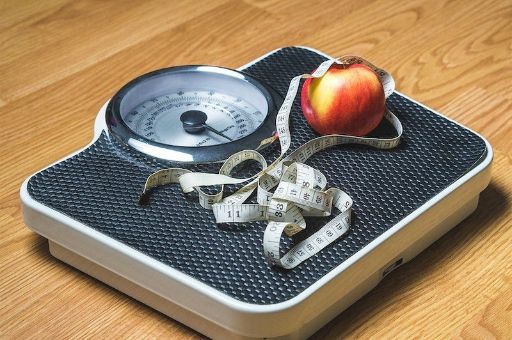
Dietary requirements for weight loss and gain are different for each individual, depending on their age, gender, activity level, health status, and goals. However, some general principles can be applied to help you achieve your desired weight.
To lose weight, you need to create a calorie deficit, which means consuming fewer calories than you burn. A safe and sustainable rate of weight loss is about 0.5 to 1 kg (1 to 2 pounds) per week. To achieve this, you can reduce your calorie intake by about 500 to 1000 calories per day below your maintenance level. You can use a calorie calculator to estimate your maintenance level and your calorie needs for weight loss.
To gain weight, you need to create a calorie surplus, which means consuming more calories than you burn. A safe and healthy rate of weight gain is about 0.25 to 0.5 kg (0.5 to 1 pound) per week. To achieve this, you can increase your calorie intake by about 300 to 500 calories per day above your maintenance level for slow weight gain or 700 to 1000 calories per day for fast weight gain.
In addition to adjusting your calorie intake, you also need to pay attention to the quality and composition of your diet. Here are some tips for both weight loss and weight gain:
- Increase your protein intake. Protein is essential for building and maintaining muscle mass, as well as supporting various functions in the body. Protein also helps you feel full and satisfied, which can prevent overeating or undereating. Aim for at least 0.8 grams of protein per kilogram of body weight per day, or more if you are very active or have specific goals.
- Eat a variety of foods from different food groups. This will ensure that you get adequate amounts of carbohydrates, fats, vitamins, minerals, and fiber that your body needs for optimal health and performance. Choose whole grains, fruits, vegetables, nuts, seeds, legumes, lean meats, fish, eggs, dairy products, and healthy oils as your main sources of nutrients.
- Limit your intake of foods high in fat, sugar, or salt. These foods are often high in calories but low in nutrients and can contribute to weight gain or health problems if consumed in excess. Examples of these foods are sweets, chocolates, cakes, biscuits, crisps, fizzy drinks, juice drinks, ketchup, mayonnaise, and gravy.
- Drink plenty of water and avoid drinks with added sugar. Water is essential for hydration and various bodily functions. It can also help you control your appetite and calorie intake. Aim for at least 2 liters (8 cups) of water per day, or more if you are very active or live in a hot climate. Avoid drinks with added sugar such as soda, juice drinks, sports drinks, energy drinks, and coffee drinks, as they can provide unnecessary calories and harm your teeth.
- Be physically active and exercise regularly. Physical activity and exercise can help you burn calories, build muscle mass, improve your metabolism, enhance your mood, and prevent or manage various chronic diseases. Aim for at least 150 minutes of moderate-intensity aerobic activity or 75 minutes of vigorous-intensity aerobic activity per week. You can also include some strength training exercises at least twice a week to increase your muscle mass and strength.
Cultural and Regional Dietary Guidelines: A Focus on Indians

The dietary guidelines for Indians are a set of recommendations developed by the National Institute of Nutrition (NIN) of India to promote healthy eating habits and prevent diet-related diseases among the Indian population. The dietary guidelines were first published in 1998 and revised in 2011.
The dietary guidelines for Indians are based on the following principles:
- Eat a variety of foods to ensure a balanced diet.
- Ensure provision of extra food and health care to pregnant and lactating women.
- Promote exclusive breastfeeding for six months and encourage breastfeeding until two years or as long as possible.
- Feed home-based semi-solid foods to the infant after six months.
- Ensure adequate and appropriate diets for children and adolescents, both in health and sickness.
- Eat plenty of vegetables and fruits.
- Ensure moderate use of edible oils and animal foods and use a minimum of ghee/butter/vanaspati.
- Avoid overeating to prevent overweight and obesity.
- Exercise regularly and be physically active to maintain ideal body weight.
- Restrict salt intake to a minimum.
- Ensure the use of safe and clean foods.
- Adopt the right pre-cooking processes and appropriate cooking methods.
- Drink plenty of water and take beverages in moderation.
- Minimize the use of processed foods rich in salt, sugar, and fats.
- Include micronutrient-rich foods in the diets of elderly people to enable them to be fit and active.
The dietary guidelines for Indians also provide specific recommendations for different population groups such as infants, children, adolescents, adults, elderly, pregnant women, lactating women, undernourished people, overweight people, people with diabetes, people with hypertension, people with cardiovascular diseases, people with renal diseases, people with liver diseases, people with cancer, vegetarians, non-vegetarians, and people following different religious or cultural practices.
Avoiding Imbalanced Nutrition
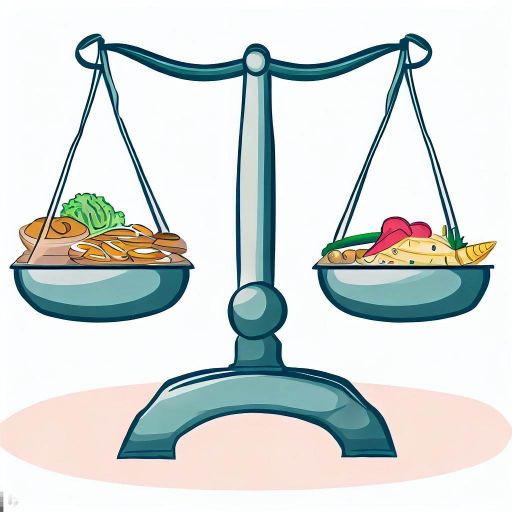
Imbalanced nutrition more than body requirements is a condition in which the intake of nutrients exceeds the metabolic needs of the body. This condition typically involves obesity, which is defined as having a body mass index (BMI) of 30 or more. Obesity is a significant risk factor for various chronic diseases such as diabetes mellitus, hypertension, cardiovascular diseases, sleep disorders, infertility, musculoskeletal problems, and some cancers. Obesity can also reduce life expectancy and affect the quality of life.
Imbalanced nutrition more than body requirements can be caused by several factors such as excessive eating compared to nutritional needs, eating in response to emotional cues or external stimuli, poor dietary habits, lack of exercise, lack of knowledge about appropriate portion size and food preparation, genetics, ethnicity, sedentary lifestyle, emotional factors associated with dysfunctional eating, culture or ethnic influences on eating, medical conditions such as diabetes mellitus, severe hypertension, and Cushing’s syndrome.
Imbalanced nutrition more than body requirements can be prevented by adopting healthy lifestyle habits such as:
- Eating a balanced diet that provides adequate amounts of protein, carbohydrates, fats, vitamins, minerals, and fiber from a variety of foods.
- Eating moderate portions and avoiding overeating or binge eating.
- Eating slowly and mindfully and paying attention to hunger and satiety cues.
- Limiting the intake of foods high in fat, sugar, or salt such as sweets, chocolates, cakes, biscuits, crisps, fizzy drinks, juice drinks, ketchup, mayonnaise, and gravy.
- Choosing healthier alternatives such as fruits, vegetables, whole grains, low-fat dairy products, lean meats, fish, eggs, beans, nuts, and seeds.
- Drinking plenty of water and limiting the intake of alcoholic or caffeinated beverages.
- Engaging in regular physical activity for at least 30 minutes per day or 150 minutes per week. This can include brisk walking, jogging, cycling, swimming, dancing, or any other activity that increases the heart rate and burns calories.
- Reducing sedentary behaviors such as watching TV, playing video games, or using computers for long periods. Instead, finding active hobbies or interests such as gardening, playing sports, or volunteering.
- Seeking professional help if there are any underlying medical conditions or psychological issues that affect eating behaviors or weight management. This can include consulting a doctor, a dietitian, a psychologist
What are the minimum calories to survive in an emergency?
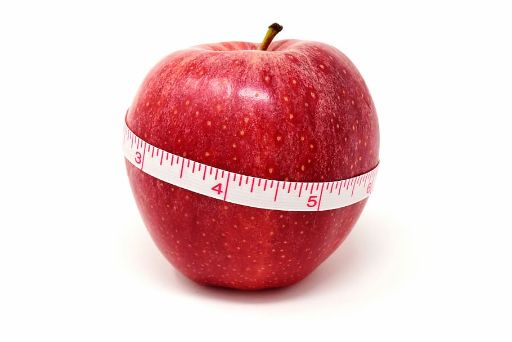
The minimum calories to survive in an emergency depend on several factors such as body weight, activity level, environmental temperature, and duration of the emergency. However, some general estimates can be made based on scientific studies and recommendations.
According to a study by Keys et al., the minimum calories required to prevent starvation and death in healthy adults during a prolonged period of semi-starvation (about six months) ranged from 1,570 to 2,100 calories per day depending on body weight. This level of calorie intake resulted in an average weight loss of about 25% of initial body weight.
According to another study by Consolazio et al., the minimum calories required to maintain body weight and function in healthy adults during a short-term period of starvation (about three days) ranged from 1,800 to 2,400 calories per day depending on activity level and environmental temperature.
According to the World Health Organization (WHO), the minimum calories required to prevent malnutrition and disease in adults and children during an emergency situation (such as a famine, a war, or a natural disaster) are about 2,100 calories per day. This level of calorie intake is based on the average energy requirement of a moderately active adult in a temperate climate.
However, the WHO also acknowledges that the actual calorie needs of individuals and populations may vary depending on their age, gender, health status, activity level, environmental conditions, and availability of food. Therefore, the WHO recommends that the minimum calorie intake should be adjusted according to the specific context and needs of each emergency situation.
Final Thoughts
Understanding your nutritional requirements is a cornerstone of achieving your health and fitness aspirations. Whether you’re guiding the growth of young children, striving for weight management, embracing cultural dietary practices, or simply aiming for overall well-being, a balanced and well-rounded approach to nutrition is key. Remember, it’s not just about what you eat, but also how you eat, that contributes to your journey toward a healthier and happier life. Always consult with a qualified healthcare or nutrition professional before making significant changes to your diet, especially if you have any underlying health conditions.



